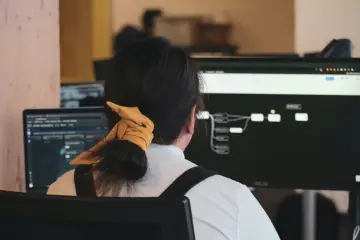There are some risks to using an unsecured Wi-Fi network, including potential security issues. However, if you’re careful, you can limit the damage. Here are some tips for how to stay safe when using a public Wi-Fi network.
Contents
Common dangers of unsecured Wi-Fi networks
Unsecured Wi-Fi networks are vulnerable to numerous dangers. These include snooping, malware, and identity theft. They can also expose users’ private information and allow hackers to access sensitive data. It is important to understand the potential risks of unsecured Wi-Fi so you can make informed choices about using it.
Some public Wi-Fi hotspots are set up by criminals who are willing to snoop on you. They may offer the service for free, but they have the potential to steal your personal and financial information. Rogue hotspots use names that are similar to legitimate hotspots so you will think you are connecting to the right network.
Rogue hotspots are dangerous because they may be infected with malware that will infect your device. Once your device is infected, it will be subject to additional spying and data leaks. Additionally, malicious websites can be installed on your device and push malware onto it. These types of attacks are on the rise, and could affect your reputation and your financial health.
Another common danger of unsecured Wi-Fi is password theft. In order to avoid this, you should use a password manager to store your login credentials. This will not only prevent password leaks, but it will also protect your login data from scammers. Besides, if you don’t log in to your account, it will be harder for snoops to access it.
Many unsecured Wi-Fi networks are susceptible to packet sniffing attacks, which capture data units sent across the network. This information can be used to steal banking and credit card information. If you need to enter confidential data or if your credentials are in question, it is best to use a VPN. If you need to make a payment, use mobile data rather than your Wi-Fi connection. This will help keep your money safe.
Other security vulnerabilities include being able to log in as an administrator or to download malware. A password cracking attack can be used on unsecured Wi-Fi to try a large number of passwords. This is an effective way for attackers to manipulate traffic and gain administrative privileges. You can also avoid password leaks by using a VPN.
Moreover, unsecured Wi-Fi can be a target for man-in-the-middle attacks. These attacks take place when a malicious actor intercepts the communication between two users, putting them between the user and the server.
Insecure Wi-Fi can also be used to distribute malware and viruses. This is because it doesn’t have the same cybersecurity measures as secure WiFi networks. Bad actors can use botnets to infect their devices with malware and spread spam. They can also rent out these botnets to other cybercriminals who will use them to spy on their targets.
Finally, unsecured Wi-Fi can allow for session hijacking. This occurs when a malicious user takes control of your computer and steals your login information. Oftentimes, this is done by impersonating a legitimate public Wi-Fi service. This is a serious issue, and it can result in a host of other issues, including NDA breaches, username theft, and more.
Avoiding unsecured Wi-Fi networks
If you use public WiFi, you need to be cautious about what you do on the network. This means not using the network for sensitive activities, such as banking and online shopping. Also, make sure that the network you choose is encrypted.
However, even if you use a secure network, you may still be vulnerable to cyber criminals. They can monitor your network traffic, steal login information and access personal and sensitive information on your computer. In addition, they can launch a spam or malware attack.
In addition to this, unsecured Wi-Fi connections are also vulnerable to browser hijacking. These attacks are carried out by malicious actors who spoof the SSID of a legitimate network and trick your device into thinking it is connected to it. In some cases, the malware is distributed to your PC through an innocent-looking pop-up window. This makes it easy to install the malware without even realizing it.
In addition, you should avoid logging into your bank account or other accounts on unencrypted networks. Those accounts are likely to be compromised, and they could allow hackers to withdraw money or apply for loans. Similarly, if you are using a public wireless network, you should avoid allowing applications to communicate with your computer, which could lead to data leaks.
If you are a smartphone user, consider a cellular data connection. A digital eSIM solution, such as one offered by international travel SIM card, can give you a more secure connection to the Internet than a free Wi-Fi hot spot. If you are an employee, connect your laptop to a cellular hotspot in the workplace. If you are an international traveler, you can also establish a cellular data connection in the United States or abroad by purchasing a physical SIM card.
Another way to protect yourself from unsecured Wi-Fi is to install antivirus software on your device. Aside from preventing malware, such software can protect you from other forms of cyber threats, such as computer viruses and spyware.
Another way to prevent unsecured Wi-Fi is to set up a virtual private network (VPN). These networks are encrypted and are typically provided by businesses or government agencies. This form of encryption allows you to send and receive information in secret code. To use the VPN, you will need to download a digital security key. In addition, you will need to enter your password for the network. This can help keep your information safe, though you can also use an encrypted Wi-Fi network if you don’t have the time to download the digital security key.
Regardless of whether you are on a secured or an unsecured network, always remember to log out of services when you are done browsing. This is especially important for your safety when you are online and doing urgent banking transactions. You should also disable file sharing on your wireless device.
Limiting damage from public Wi-Fi networks
One of the best ways to minimize the damage a public Wi-Fi connection can cause is to make sure you’re only on the right network at the right time. It’s also a good idea to keep an eye out for nefarious hackers who might take advantage of your network and make it their own. Likewise, it’s important to make sure your devices and laptops are tethered to a secure network.
For example, the best way to defend against nefarious hackers is to ensure that only you have access to your personal data, and your company’s information is inaccessible to the bad guys. This is why it’s essential to employ security best practices such as using strong passwords and encrypting sensitive data. Fortunately, there are several ways to accomplish this, including using a password manager and a virtual private network (VPN) to keep prying eyes at bay. These solutions, coupled with a few simple tricks, can keep your information safe and secure. As a result, your work and personal lives will remain in good hands. To ensure that your data is kept confidential, enlist the help of a qualified IT professional to implement a proper firewall and virus protection.






